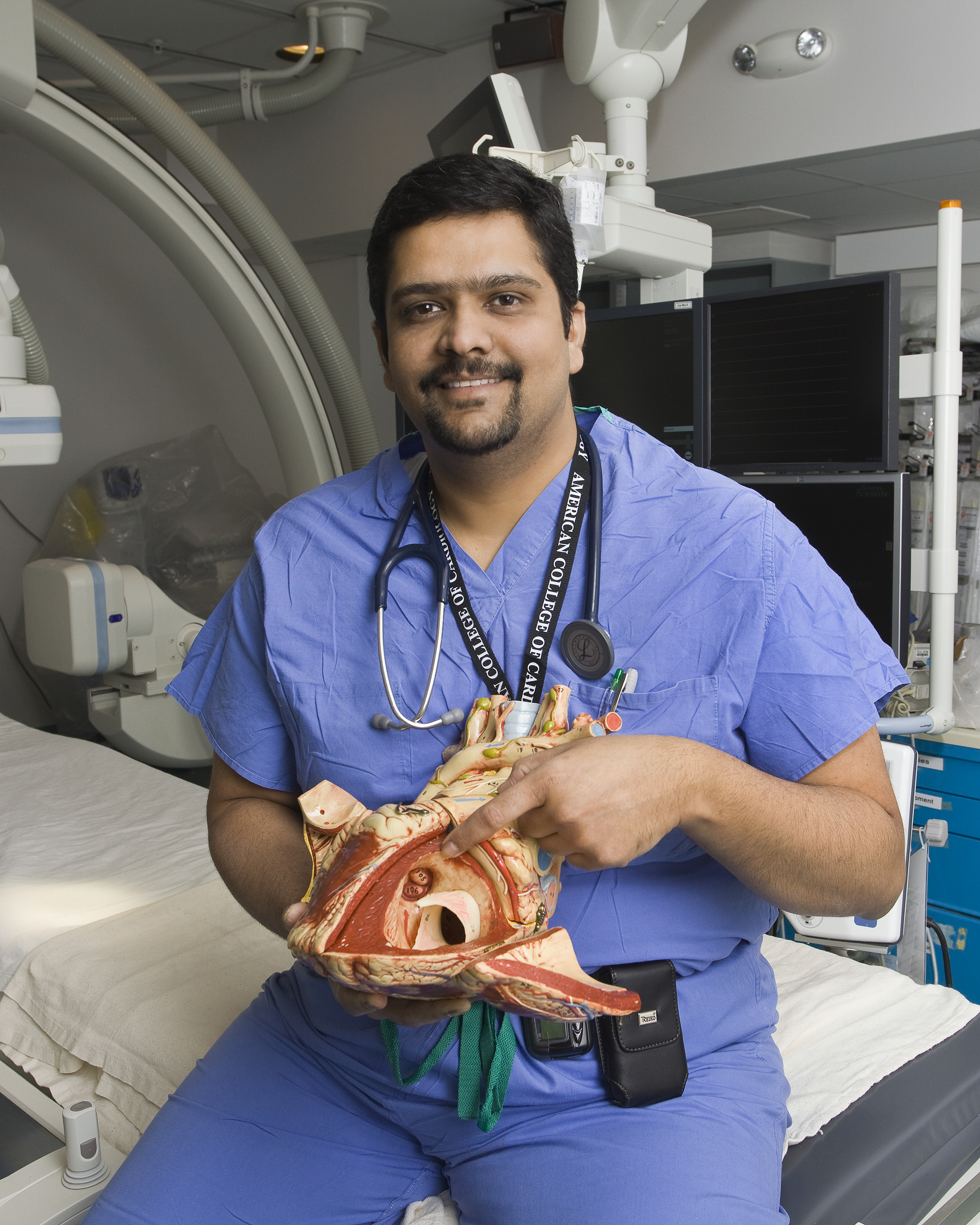by Vijay S. Iyer, MD, PhD
 Some of the most common issues affecting people worldwide are aortic stenosis (narrowing or obstruction of the aortic valve), atrial fibrillation (irregular heart rhythm), and degenerative mitral regurgitation (connective tissue of the mitral valve causes lesions preventing normal heart function). Now, more than ever, minimally invasive technologies are saving and improving lives.
Some of the most common issues affecting people worldwide are aortic stenosis (narrowing or obstruction of the aortic valve), atrial fibrillation (irregular heart rhythm), and degenerative mitral regurgitation (connective tissue of the mitral valve causes lesions preventing normal heart function). Now, more than ever, minimally invasive technologies are saving and improving lives.
Transcatheter Aortic Valve Replacement (TAVR). Aortic stenosis affects millions of people in the U.S., and occurs when the aortic heart valve, which regulates blood flow from the heart, narrows or becomes obstructed. TAVR allows a new valve to be inserted within the existing, failing valve. Performed by a specially-trained heart team, TAVR saves lives and significantly improves life-quality for patients. Its shorter recovery time means that stroke risk is minimal during and after the procedure. TAVR can be done without general anesthesia, allowing patients to return home within 48 hours.
Sentinel® Cerebral Protection System. During the TAVR procedure, a long flexible catheter is threaded through an artery (generally through the leg) to reach the aortic valve. An artificial replacement valve at the tip of the catheter is expanded, pushing aside the diseased valve. While stroke risk is low during TAVR, embolic debris (calcium, tissue, or other organic or foreign matter) may break loose and travel through the bloodstream toward the brain, potentially limiting the brain’s blood and oxygen supply. Should this occur, the risk for stroke or cerebral injury may increase. To protect patients from this risk, GVI is one of the first 25 locations chosen to study and offer Protected TAVR™ using the Sentinel® Cerebral Protection System, the only FDA-approved device that filters, captures, and removes potentially dangerous debris before it can reach a patient’s brain. Sentinel® technology has protected thousands of patients worldwide and is the most-studied device in TAVR cerebral protection.
WATCHMAN™ Procedure. Patients with irregular heart rhythm (atrial fibrillation) often take warfarin, a medication that prevents clots from forming. However, warfarin is a blood thinner, placing patients at risk for internal bleeding. An umbrella-like device, the procedure isolates the left atrial appendage and eliminates clot embolization. It is the first FDA approved procedure to prevent strokes in patients with atrial fibrillation, eliminating the need for risky blood-thinning medications.
The MitraClip™ Procedure. MitraClip™ therapy helps patients with degenerative mitral regurgitation at high risk for open heart surgery. Mitral regurgitation occurs when the mitral valve fails to close completely, causing blood to leak backward inside the heart. MitraClip™ is the world’s first trans catheter mitral valve repair therapy for select patients with this condition. Clinical trials show those who received the treatment experienced positive results, including reduced hospitalizations for heart failure.
If you are a patient who is suffering from any of these conditions you may want to discuss these life-changing procedures with your cardiologist.
Vijay Iyer, MD, PhD is an interventional cardiologist at Great Lakes Cardiovascular, specializing in structural heart interventions, general and interventional cardiology, and complex valvular heart diseases. Dr. Iyer directs the complex valve clinic at Buffalo General Medical Center, and structural heart interventions at Gates Vascular Institute and Buffalo General Hospital. See www.greatlakescardiovascular.com. To make an appointment with Dr. Iyer, call 716-710-8266, 716-859-1784, or 859-2401.











